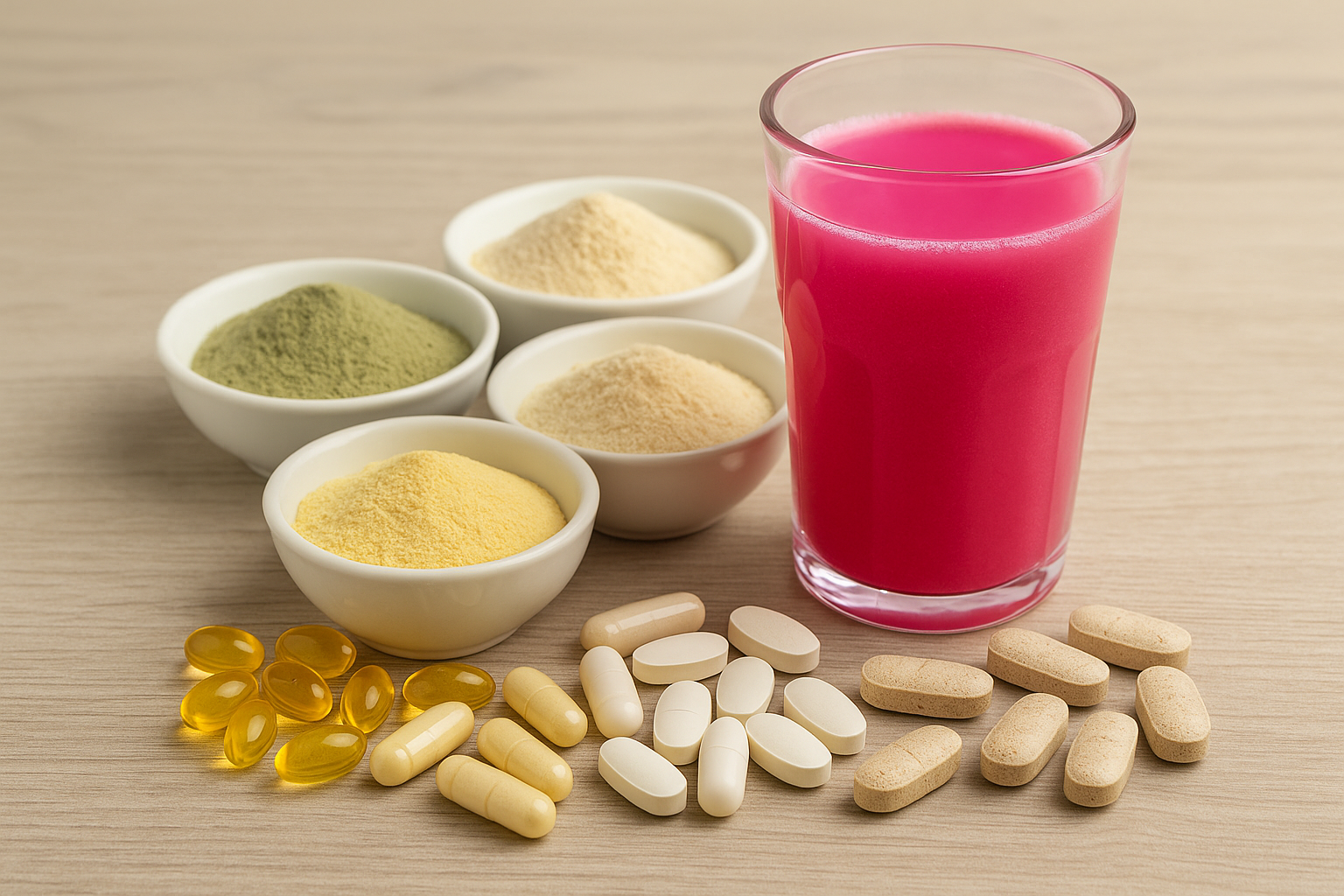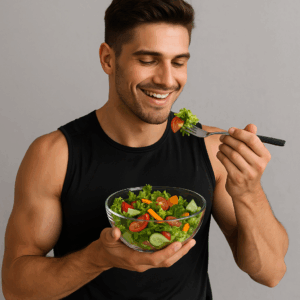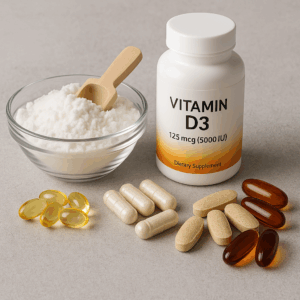Bryan Johnson’s Blueprint: What Athletes Should Know About Supplements vs. Whole Foods

Bryan Johnson’s Blueprint: What Athletes Should Know About Supplements vs. Whole Foods
If you’ve followed Bryan Johnson-the tech entrepreneur turned anti-aging pioneer-you’ve probably heard of his ambitious Blueprint protocol. His supplement stack and lifestyle regimen have attracted global attention for pushing the boundaries of longevity science.
Recently, Johnson made a bold claim:
“Whole foods are insufficient. They are great, but if you’re striving for ideal health, you’ll need targeted supplementation based upon study-level amounts.”
He even illustrated his point by showing how much food you’d need to eat to match just one day of his supplement stack-such as five pounds of wild salmon, three pounds of goose liver, or 30,000 liters of milk. His conclusion: you’d “get fat” trying to meet those needs through diet alone.
As a functional sports nutritionist, I admire Bryan Johnson’s dedication and his willingness to help people pursue better health. But on this point, I have to disagree.
What’s in Bryan Johnson’s Blueprint?
Johnson’s Blueprint stack includes dozens of compounds, from mainstream vitamins and minerals to cutting-edge longevity agents. His supplement lineup has featured:
-
NMN / NR (Nicotinamide Riboside) – precursors to NAD+, linked to cellular energy
-
Ca-AKG (Calcium Alpha-Ketoglutarate) – studied for metabolic and aging pathways
-
CoQ10 – supports mitochondrial function
-
Vitamin D3 – essential for bone, immune, and hormonal health
-
Omega-3s (EPA/DHA) – critical for brain, heart, and inflammation control
-
Sulforaphane (Broccoli extract) – plant compound with antioxidant effects
-
Ashwagandha, L-theanine, curcumin, NAC, luteolin, spermidine – various botanicals and bioactives
These are exciting, and in some cases, clinically validated ingredients. But there’s more to the story.
Why Whole Foods Still Matter

Supplements can help fill gaps or deliver “clinical doses” used in research. But equating a pill to a plate of food misses the bigger picture.
When you eat food, you aren’t just getting a single isolated nutrient-you’re taking in an entire matrix of compounds. Think of an avocado: beyond its healthy fats, it offers fiber, potassium, vitamin E, carotenoids, and dozens of phytochemicals that work synergistically.
The same goes for spinach, salmon, and yes-even olive oil, which Johnson himself highlights in his Blueprint. Olive oil isn’t just monounsaturated fat-it’s also loaded with polyphenols, vitamin E, and plant sterols that together provide anti-inflammatory and cardiovascular benefits.
This nutrient synergy can’t be replicated by capsules or powders. Food brings context, balance, and protective compounds that supplementation alone cannot.
When Supplements Do Have a Place

That said, I don’t dismiss supplements outright. In fact, for athletes and active individuals, they can be strategically valuable. Here are some examples:
-
Vitamin D in those with low sun exposure
-
Omega-3s for athletes who don’t eat fish
-
Iron or B12 in confirmed deficiencies
-
Creatine, electrolytes, or protein powders for performance support
For example, creatine is a supplement with clear, evidence-based benefits for athletes-read my full article on creatine here.
But supplements should complement-not replace-foundational nutrition. If your diet is built on whole, nutrient-dense foods, you’ll already be getting thousands of bioactive compounds that no supplement stack can fully reproduce.
Final Thoughts: Where I Agree (and Disagree) with Bryan Johnson
Like Bryan Johnson, I believe in using science to push the boundaries of health and longevity. His Blueprint stack is fascinating and has value in certain contexts.
Where I differ is in the suggestion that whole foods are “insufficient.” Whole foods aren’t just sufficient-they’re foundational. They provide synergy, variety, and balance that no supplement can match.
Supplements may have a role, but for most of us (including high-performing athletes), the first step is optimizing diet, recovery, and lifestyle.
If you’re curious about how to combine the best of both worlds-evidence-based supplementation and nutrient-dense whole foods-that’s where I come in.
As a functional sports nutritionist, I create personalized nutrition programs that support performance, recovery, and long-term health. Whether you’re an athlete, an active professional, or someone simply aiming to age well, I can help you cut through the noise and build a plan that works for your body.
